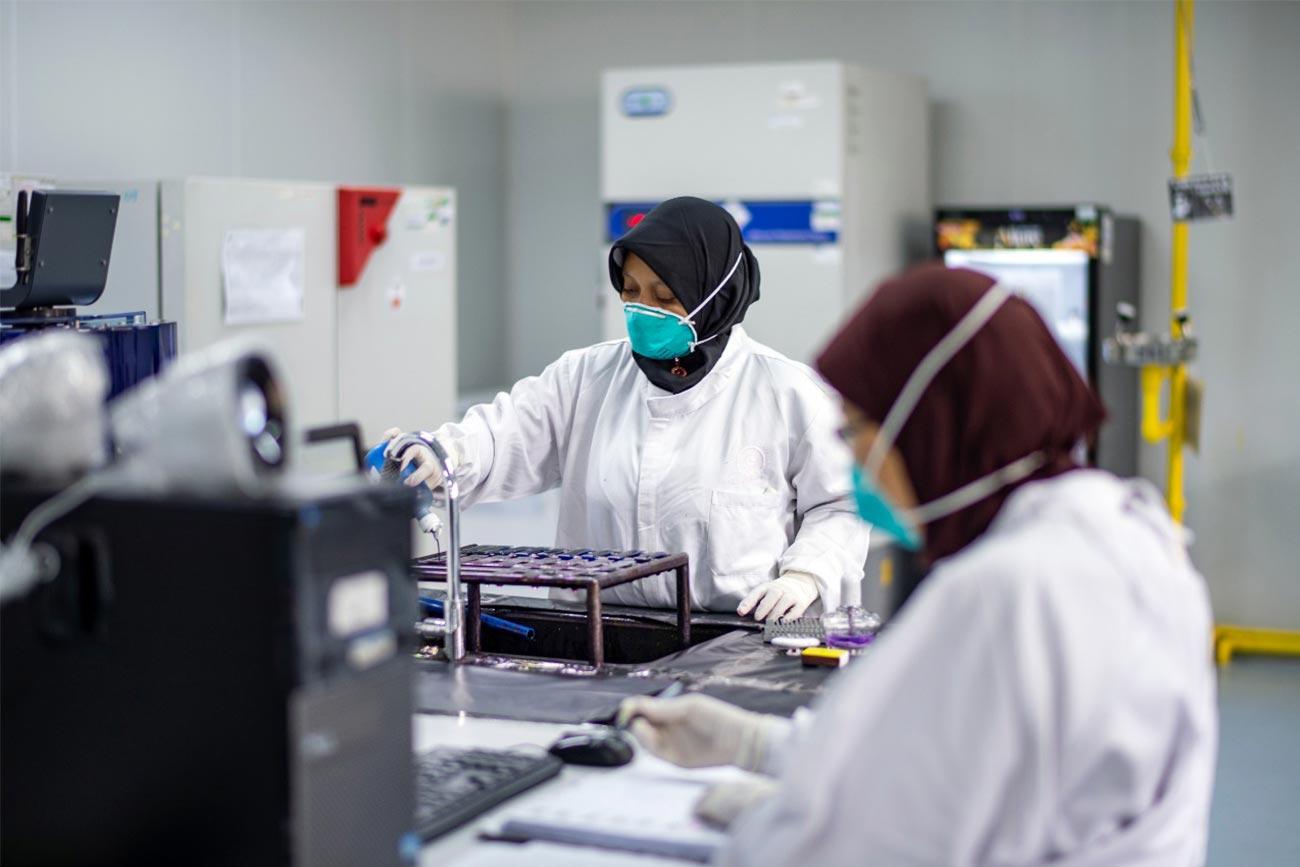Indonesia and WHO working together to better understand the extent of SARS-CoV-2 infection and population immunity as part of WHO Unity Study

The study is expected to include more than 10 000 participants from 17 Indonesian provinces and 69 districts
Indonesia is joining a global serologic study for COVID-19 coordinated by the World Health Organization (WHO) to comprehensively understand the extent of infection among different populations, the occurrence of mild and asymptomatic infection, and the proportion of antibodies against SARS-CoV-2 infection in general population by sex and age group, in order to ascertain the cumulative population immunity. In early June, Indonesia expressed interest in joining Solidarity II - a global collaborative platform to advance scientific understanding in the area of serologic studies by implementing a WHO Unity Study.
"The detection and spread of an emerging respiratory pathogen like COVID-19 are accompanied by uncertainty over the key epidemiological and serologic characteristics, We would like to assess the magnitude of the problem and investigate the extent of infection by participating in the WHO seroepidemiological investigation. Said dr. Wiendra Waworuntu, M.Kes, the Director of Communicable Diseases Prevention and Control at the Ministry of Health"
"So far, the global evidence regarding the role of asymptomatic and pre-symptomatic, in COVID-19 transmission is still limited, participating in this international study is a way to obtain more information, to understand the true extent of infection in the general population. Said Dr N. Paranietharan, WHO Representative to Indonesia"
In Indonesia, the seroepidemiological study will be jointly led by the Directorate General of Disease Prevention and Control in the Ministry of Health and the National Institute of Health Research and Development (NIHRD).
The study will involve multidisciplinary researchers from various academic and research institutions along with experts in acute respiratory infection, regional referral laboratories, and health authorities at the sub-national level. WHO is providing close technical support to the Ministry of Health to undertake the study and is jointly adapting the Unity Study global protocol to local settings and epidemiological characteristics of COVID-19 in Indonesia.
The study is expected to include more than 10 000 participants from 17 Indonesian provinces and 69 districts. Enzyme Linked Immunosorbent Assay (ELISA) and neutralizing assay will be used to measure the prevalence of COVID-19 antibodies.
Indonesia’s participation in the global serologic study will contribute not only to the national public health response and policy decisions but also to global understanding of seroprevalence and control measures.
About the WHO Unity Studies:
The WHO Unity Studies are a series of early investigation protocols designed to collect information to better understand transmission patterns, severity, clinical features and risk factors for infection of the new COVID-19 disease. Data collected through these investigations will be critical to refine recommendations and better understand various aspects of the disease and its impact on the community.
More information on the WHO Unity Studies can be found here: www.who.int/emergencies/diseases/novel-coronavirus-2019/technical-guidance/early-investigations
More information on Solidarity II can be found here: www.who.int/emergencies/diseases/novel-coronavirus-2019/global-research-on-novel-coronavirus-2019-ncov/solidarity-2-global-serologic-study-for-covid-19
Media contacts
- WHO Indonesia Communications Team: seinocomm@who.int
- Communication and Community Service Bureau, Ministry of Health Republic of Indonesia: kontak@kemkes.go.id

